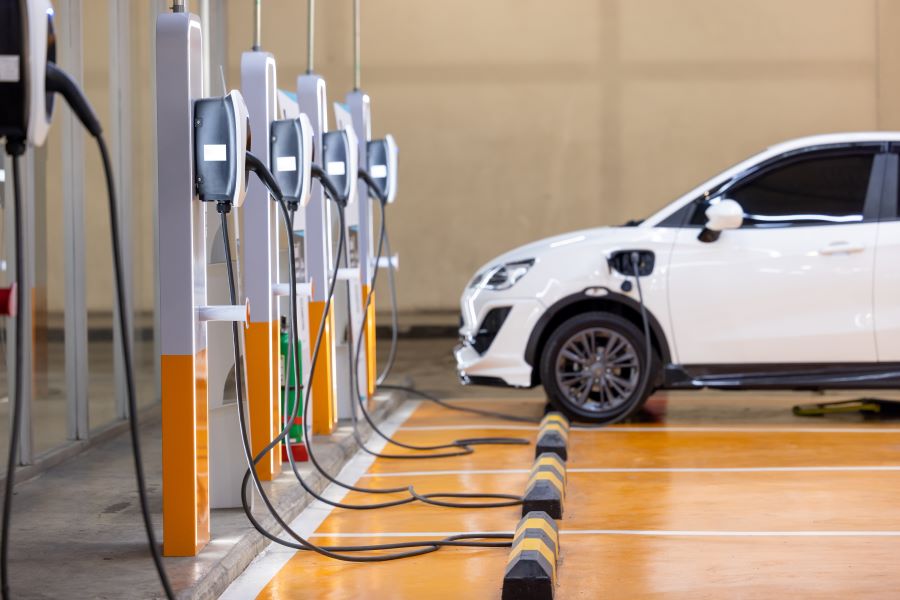Electric Vehicle Home Power Station Setup
Setting up an electric vehicle home charging station transforms your garage into a convenient refueling hub for your EV. Home charging stations offer faster charging speeds than standard outlets, improved safety features, and the convenience of overnight charging. Understanding the installation process, equipment options, and electrical requirements helps ensure you choose the right solution for your home and driving needs.

Understanding EV Home Charging Station Types
Electric vehicle home charging stations come in two primary categories: Level 1 and Level 2 chargers. Level 1 chargers use standard 120-volt household outlets and provide approximately 3-5 miles of range per hour of charging. Level 2 chargers require 240-volt outlets, similar to those used for electric dryers, and deliver 10-60 miles of range per hour depending on the charger’s amperage and your vehicle’s onboard charger capacity.
Most EV owners prefer Level 2 charging stations for home use due to their significantly faster charging speeds. These units typically operate at 32 or 40 amps, providing enough power to fully charge most electric vehicles overnight. The charging speed also depends on your vehicle’s maximum charging rate, which varies by manufacturer and model.
Electrical Requirements and Installation Considerations
Installing an EV home charging station requires careful evaluation of your home’s electrical system. Most Level 2 chargers need a dedicated 240-volt circuit with appropriate amperage capacity. Your electrical panel must have sufficient capacity to handle the additional load, and in some cases, panel upgrades may be necessary.
Professional installation is strongly recommended for Level 2 charging stations. Licensed electricians can assess your electrical system, obtain necessary permits, and ensure code compliance. The installation process typically involves running new wiring from your electrical panel to the charging location, installing a dedicated circuit breaker, and mounting the charging station.
Consider the charging station’s location carefully. Garages are the most common installation sites, but outdoor installations are possible with weatherproof units. The charging cable length should reach your vehicle’s charging port comfortably, and the location should provide easy access for daily use.
Smart Features and Connectivity Options
Modern EV home charging stations offer various smart features that enhance convenience and efficiency. WiFi connectivity allows remote monitoring and control through smartphone apps, enabling you to track charging sessions, schedule charging during off-peak hours, and receive notifications when charging is complete.
Load management features help optimize energy usage by adjusting charging power based on your home’s total electrical demand. This prevents overloading your electrical system and can reduce electricity costs by avoiding peak demand charges. Some advanced units can integrate with home energy management systems and solar panels.
Voice control compatibility with Amazon Alexa or Google Assistant adds another layer of convenience, allowing you to check charging status or start charging sessions with voice commands. Energy monitoring features provide detailed insights into your charging patterns and electricity usage.
Cost Analysis and Provider Comparison
EV home charging station costs vary significantly based on features, amperage, and brand. Understanding these costs helps you make an informed decision for your home setup.
| Provider | Model | Amperage | Cost Estimation |
|---|---|---|---|
| Tesla | Wall Connector | 48A | $400-500 |
| ChargePoint | Home Flex | 16-50A | $600-700 |
| JuiceBox | JuiceBox 40 | 32A | $500-600 |
| Grizzl-E | Classic | 40A | $400-500 |
| Emporia | Vue Smart Charger | 48A | $450-550 |
Installation costs typically range from $500 to $2,000, depending on your home’s electrical setup and the complexity of the installation. Simple installations with existing 240-volt outlets cost less, while installations requiring new electrical panels or extensive wiring cost more.
Prices, rates, or cost estimates mentioned in this article are based on the latest available information but may change over time. Independent research is advised before making financial decisions.
Federal and State Incentives
Various incentives can significantly reduce the cost of EV home charging station installation. The federal tax credit for EV charging equipment covers 30% of installation costs up to $1,000 for residential installations. Many states and local utilities offer additional rebates and incentives.
Utility companies often provide time-of-use rates that make overnight EV charging more affordable. Some utilities offer special EV rates with lower nighttime electricity costs, potentially saving hundreds of dollars annually on charging costs. Research your local utility’s EV programs to maximize savings.
Some regions offer rebates specifically for smart charging stations that can participate in demand response programs. These programs allow utilities to temporarily reduce charging power during peak demand periods in exchange for lower electricity rates.
Safety Features and Code Compliance
Modern EV charging stations include multiple safety features to protect users and electrical systems. Ground fault circuit interrupters (GFCI) prevent electrical shock, while overcurrent protection prevents electrical fires. Temperature monitoring ensures safe operation in various weather conditions.
Proper installation following National Electrical Code (NEC) standards is essential for safety and insurance compliance. Many jurisdictions require permits and inspections for EV charging station installations. Working with licensed electricians ensures code compliance and proper safety measures.
Regular maintenance involves visual inspections of the charging station and cable for damage, keeping the unit clean and free from debris, and testing safety features periodically. Most quality charging stations require minimal maintenance when properly installed.
Setting up an EV home charging station provides convenient, efficient charging for your electric vehicle while potentially reducing long-term fuel costs. Careful consideration of your electrical system, charging needs, and available incentives ensures you select the right equipment and installation approach for your home.




